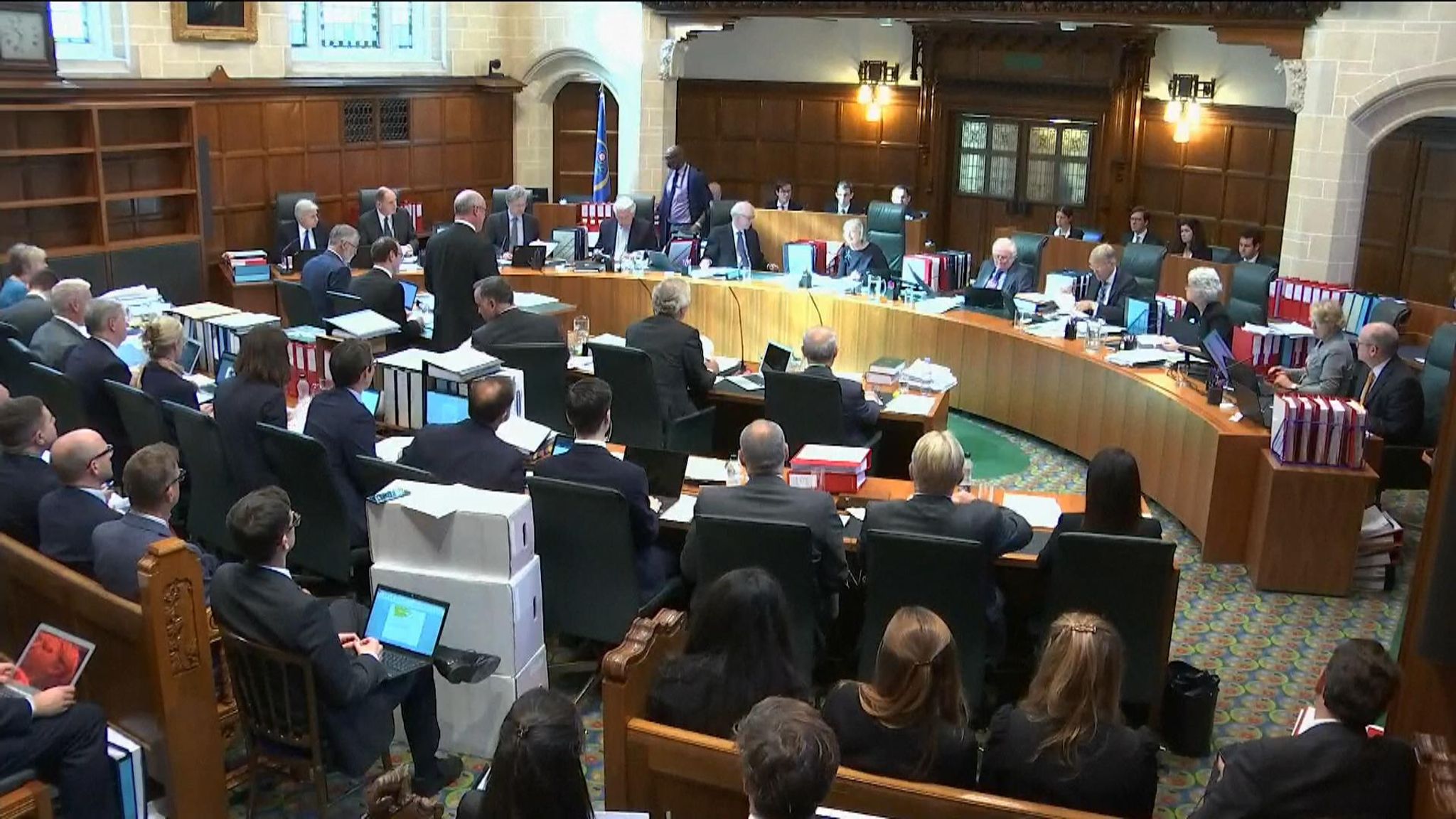Subject: The Supreme Court.
The legal dimension of words and their meaning is the bread and butter of this court. More than any other the Supreme Court has to weigh up the meaning of other courts which in themselves have applied their minds to the wording and therefore the accuracy of the meaning. The bundles which are placed before the Law Lords are the written confirmation of previous rulings and in our legal system, precedence is the touch stone which guides the ruling today.
It's interesting that given the wide range of cases which come before the court there is a matrix of words and opinion which can, like a language, make each case and the totality of all cases, one, in terms of their legal basis.
There is an expectation amongst the formality of the court and it's setting, that these legal minds will steer a course between the rocks and the minefields which one barrister plants and the other seeks to defuse, that amidst the high flown language and measured phrase there is a thread which will be decided and that the ruling will become a firm precedent for another occasion.
The personalities in the court are always fascinating.
The barristers on who's shoulders much of the theatre lies are mertitculusly schooled in their brief. The teams of lawyers back in their chambers have poured over the case law into the early hours looking for a paragraph in a previous ruling which is pertinent to today's argument. It's all a matter of the purchase that interpretation can bring to open the minds of the Law Lords to the possibility that the law means this and not that.
This case is one which a barristers career is marked out such is the portent of the outcome. These men and women who do this work each bring, along with a forensic mind, a personality and a way of playing to the court as if they were gifted actors in a play. The impeccable suite and tie, the gravitas, the measured timing of their oratory is all part of their standing in the court. Their ability to speak to their brief for hours at a time, the ability to retain control of meticulous page inventory system guiding their Lordships to the point in their legal bundle, always with a mind to connecting the dots of their argument. The flurry of activity in the barristers team of advisors if one of their Lordships asks a question which out of the blue can momentarily trip the barrister and give rise to that most feared occurrence, confusion. Everything is fine tuned like a violin string, a discordant note ruins the performance and to this end the tension amongst the players is high.
The political intent is of no interest, only the context of a previously implied parliamentary action in so far as it effects the rules, such as they are, of the procedure which runs the parliamentary system.
Parliament makes the law but it can't make law on the hoof, it has to be debated and voted upon by the MPs.
The situation we are in now arises from the fact that without a majority the government wishes to do one thing and Parliament another. The question is 'who is the arbiter'. One hopes that the law of 'precedence' will be the answer.

No comments:
Post a Comment